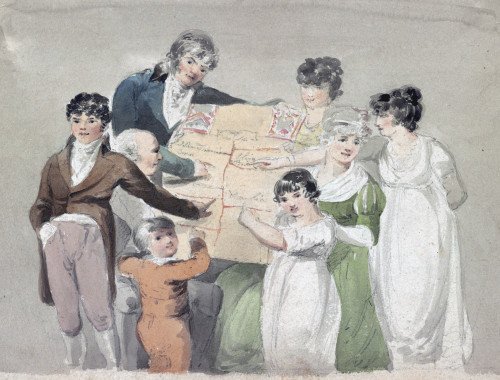My recent reading of Jane Austen's Bookshelf has led me back t works that shaped Austen's own literary sensibility. Her father's library of 300 volumes, supplemented by circulating library subscriptions, gave her access to a remarkable range of contemporary and earlier literature. I have selected several extracts that illuminate the philosophical and literary foundations of her novels.
Love is, in a great degree, an arbitrary passion, and will reign like some other stalking mischiefs, by its own authority, without
deigning to reason; and it may also be easily distinguished from
esteem, the foundation of friendship, because it is often excited
by evanescent beauties and graces, though to give an energy to the sentiment something more solid must deepen their impression and set the imagination to work, to make the most fair-- the first good. A Vindication of the Rights of Woman
Mary Wollstonecraft
To be well convinced of the sincerity of the man they are about to marry, is a maxim, which I always recommended to a young lady; But I say it is no less material for her future happiness, as well as that of her intended partner, that she should be well assured of her own heart, and examine, with the utmost care, whether it be, real tenderness, or a bare liking she at present feels for him; and as this is not to be done all at once, I cannot approve of hasty marriages, or before persons are of sufficient years to be supposed capable of knowing their own minds.
Eliza Heywood The Female Spectator 1750

Mad Folks and Lunaticks
In the genteel world of Regency England, madness was not truly a medical diagnosis—it was a legal and social crisis. If the patriarch of an estate began to show signs of mental decline, it was not only a family tragedy but a potential threat to the continuity of property and inheritance. In my novel, The Mercy of Chance, a variation of Pride and Prejudice, this delicate question moves to center stage when the Bennet sisters find themselves managing Longbourn after their father’s death, while their elderly grandfather—the legal owner of the estate—is accused of madness by a grasping cousin.



